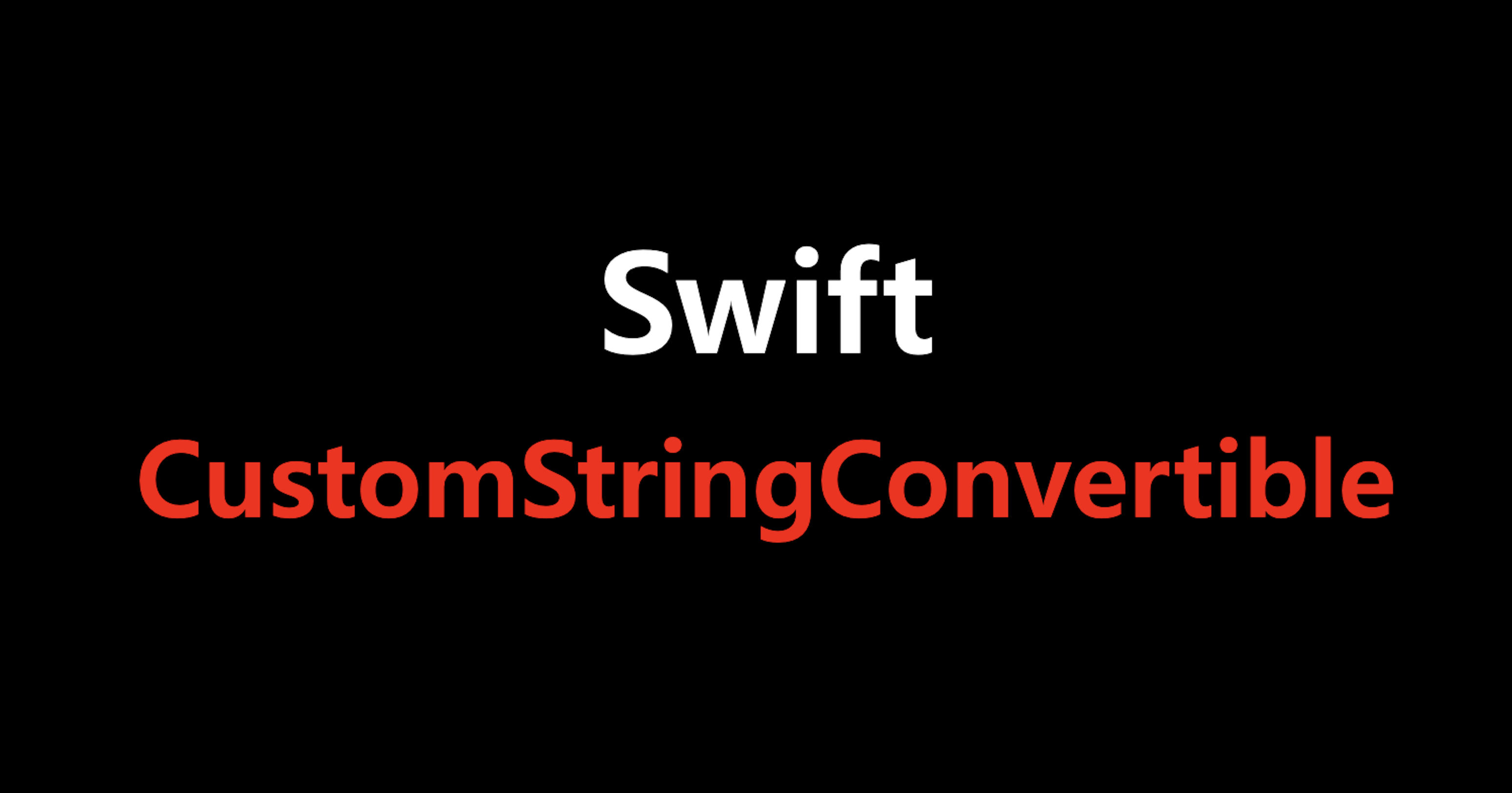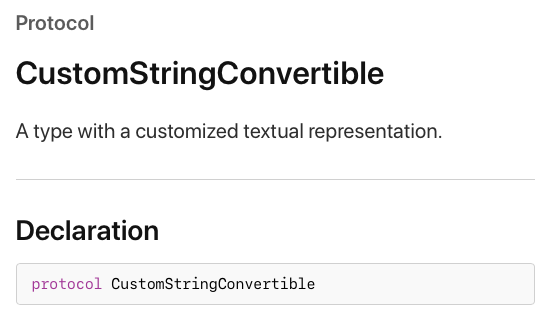
프로젝트를 진행하는 도중에 다음과 같은 리뷰를 받은 적이 있었다.
enum CustomerPriority: String, CaseIterable {
case VVIP = "0"
case VIP = "1"
case normal = "2"
var description: String {
switch self {
case .VVIP:
return "VVIP"
case .VIP:
return "VIP"
case .normal:
return "일반"
}
}
}손님의 우선순위라는 Enum 타입이 있고 안에 description이라는 변수가 있다.
이에 대해서 팀원이었던 Lina가 CustomStringConvertible을 사용해보는 것은 어떤지 리뷰를 남겨주었다.
고마워요 Lina🙇♂️
 먼저 공식문서를 살펴보면
먼저 공식문서를 살펴보면 CustomStringConvertible은 protocol이라고 한다.
그렇다면 어떠한 기능들을 가지고 있는지에 대해서 알아보도록 하자!!
역할
CustomStringConvertible 프로토콜을 채택한 type은 instance를
문자열로 변환할 때 사용할 고유한 표현을 제공해준다고 한다.
String(describing:) initializer는 모든 type의 instance를 문자열로 변환해주는 방법이다.
만약 전달된 instance가 CustomStringConvertible을 채택하고 있는 경우에는
String(describing:) initializer와 print(_:) 함수는 instance의 custom된
description 프로퍼티를 사용하게 된다.
type의 description 프로퍼티에 직접적으로 접근하거나, CustomStringConvertible을 일반 제약 조건으로 사용하는 것은 권장하지는 않는다고 한다.
사용 예시
위에서 역할을 글로만 보았을 때는 확실하게 와닿지는 않는다.
실제 사용 예시를 확인해보자.
struct Point {
let x: Int, y: Int
}
let p = Point(x: 21, y: 30)
print(p.x, p.y)
// Prints "21 30"
print(p)
// Prints "Point(x: 21, y: 30)"다음과 같이 Point라는 구조체가 있을 때 구조체의 프로퍼티를 출력하고 싶은 경우에는 직접적으로 접근하거나 아니면 구조체를 출력하게 되면 위와 같은 결과가 나오는 것을 확인할 수 있다.
이럴 때 CustomStringConvertible을 채택하여 구현하면 다음과 같이 구조체의 프로퍼티를 출력할 수 있다.
extension Point: CustomStringConvertible {
var description: String {
return "(\(x), \(y))"
}
}
print(p)
// Prints "(21, 30)"맨 처음 코드리뷰를 받았던 코드도 CustomStringConvertible 채택하도록 수정해보겠다.
enum CustomerPriority: String, CaseIterable {
case VVIP = "0"
case VIP = "1"
case normal = "2"
}
extension CustomerPriority: CustomStringConvertible {
var description: String {
switch self {
case .VVIP:
return "VVIP"
case .VIP:
return "VIP"
case .normal:
return "일반"
}
}
}
print("\(CustomerPriority.VVIP)") // Prints "VVIP"
print("\(CustomerPriority.VIP)") // Prints "VIP"
print("\(CustomerPriority.normal)") // Prints "일반"기존에는 CustomerPriority.VIP.descritpion 를 통해서 해당 String을 출력할 수 있었다면,
보간법을 사용할 때 CustomStringConvertible 을 사용하면 훨씬 가독성 있게 코드를 작성할 수 있을 것 같다.
